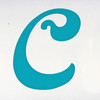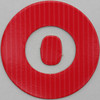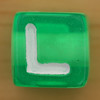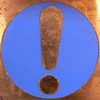This will be a l-o-n-g post, as I plan to present a sort of journal of the viewing and reading that we did for this Thing.
The video by Steven Abram, and the articles for this Thing make a good case for the new social aspect of the Web and for libraries that want to take advantage of the new tools.
Abram stressed the importance of not just jumping through the hoops, but spending time in reflection on what we're doing, and the consequences of what we do, both intended and unintended. He also suggested setting aside time every day to work on the "23 Things," a suggestion that I plan to take. I'm doing the Things on my own time; I hope to stay on track if I try to spend 15 minutes on the Things at the same time I check my emails at home (which I do at least daily).
Blyberg's note made a good point - the main reason that Library 2.0 exists and matters is that the library can use the tools to make the library experience relevant to the patron: the key word is "relevant."
The "The Ongoing Web Revolution" article made a case for Library 2.0 being not just a new version of the library, but a real revolution in what a library is and what a library does. The author (Michael Stephens?) says the next step will be "a mashup of all that has come before; the online social library."
I read through the entries in the OCLC Next Space Newsletter dealing with "Web 2.0: Where Will It Take Libraries?"
Rick Anderson warned about "icebergs" that threaten the execution of Library 2.0: (1) not rethinking the "just in case" collection; (2) relying on user education; (3) using a "come to us" model of library service.
Michael Stephens described the ideal Librarian 2.0, who: (1) plans for her user; (2) embraces Web 2.0 tools; (3) controls her "techno-lust"; (4) makes good, yet fast decisions; and (6) gets the concept of content under Web 2.0. Stephens seemed to run out of room at the end, and listed a few other things, but maybe the first six are most important and unique to Library 2.0.
Chip Nilges's note focused on using Web 2.0 to build new services for the patron. Some ideas I extracted from his essay were: touch the entire Web, collect user intelligence (users add value), release lightweight services, and build better data. He ends by stating that Library 2.0 can help libraries to "collaborate in new and powerful ways," and that seems like a very cool thing!
John Riemer explores the use of Web 2.0 to lead the library community to "better bibliographic services."
I appreciated Wendy Schultz's entry, not only because she was female (!) but because she presented kind of a timeline to the past, present, and future of the library: (1) Library 1.0 was about the commodity of the library; (2) Library 2.0 is about product; (3) Library 3.0 will use Web 3D to build Library 3D to provide expanded services to patrons; and (4) Library 4.0 will be something she names "the neo-library," providing a brand-new experience to the patron. She says that Web 2.0/Library 2.0 is simply a temporary place in time on the way to the library experience of the future. Fascinating to think about!
Finally, I read the Wikipedia entry for "Library 2.0." The main concept I took away from that reading was the concept of "radical trust" concerning external users; granting to the patron the notion that what they think and know is important, at least as important as what library workers think and know.
Now, what do I do with this knowledge...as a recent library school grad, I've heard a lot about Library 2.0. I've at least heard about most of these tools, and have played around with many of them. I think what I hope to gain from the 23 Things project is to become more methodical about them, to really dig in and use them (enough so that I would be able to introduce someone else to them). The Internet has been such a great tool for the practicalities of life; now maybe I can see how it can be used even more extensively, to improve the quality of life and the social experience.
I feel comfortable with the project, and with the tools we will be exploring. As far as my work environment, I believe that my library (Ramsey County) is at a very early point with Web 2.0. As a part-time clerk/page, I don't know what I can do to change that, except to participate in endeavors such as 23 Things! I am very much looking forward to the journey!
Tuesday, February 19, 2008
Subscribe to:
Post Comments (Atom)
My Trading Card










No comments:
Post a Comment